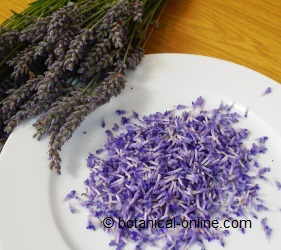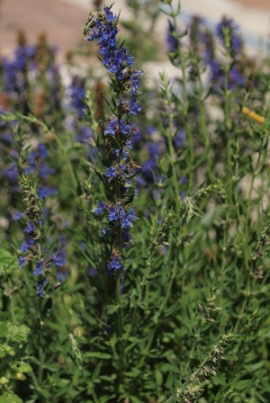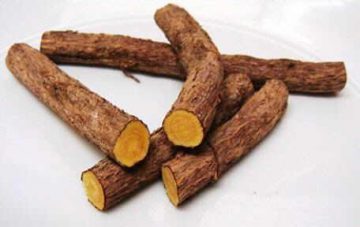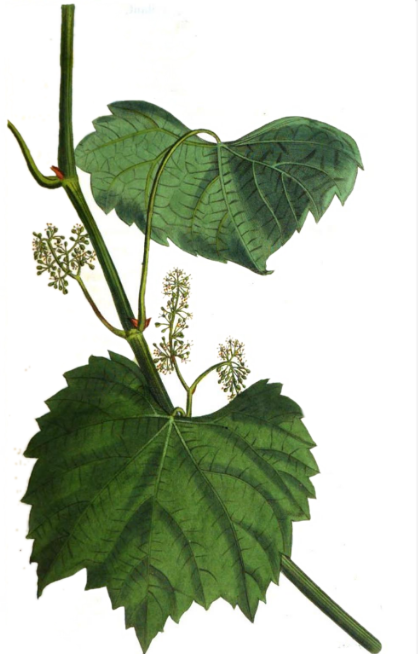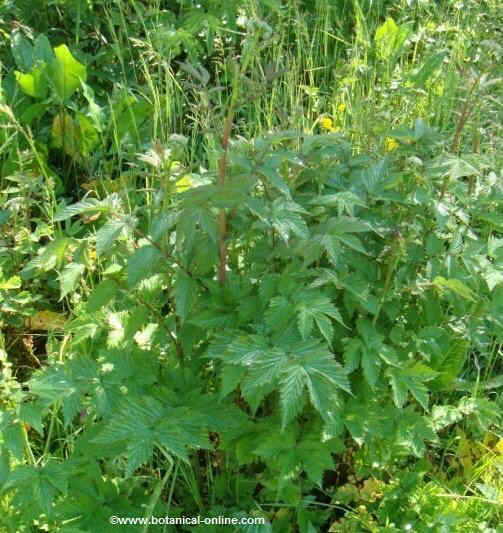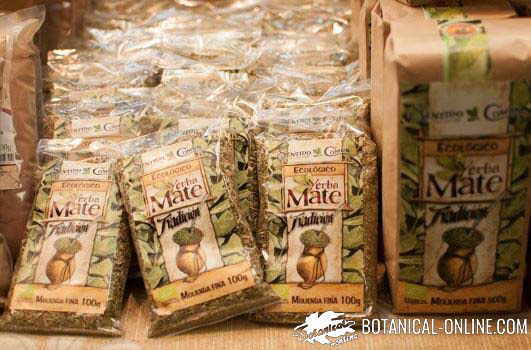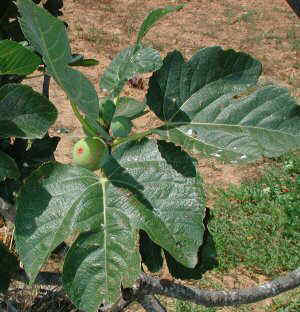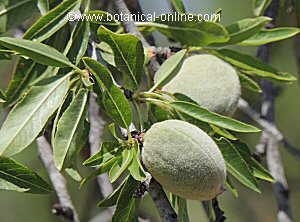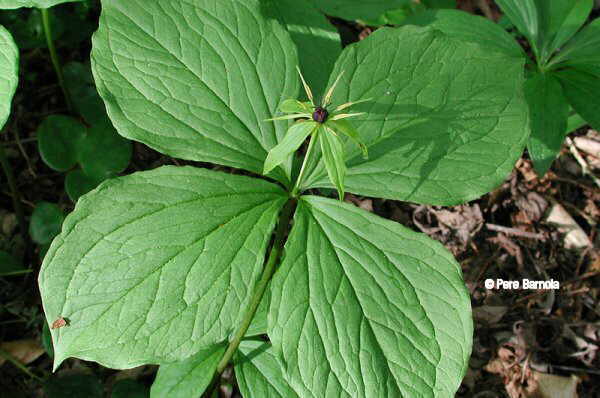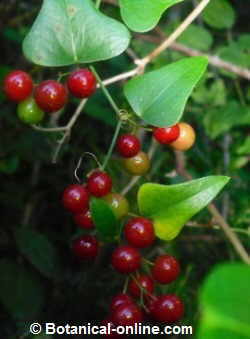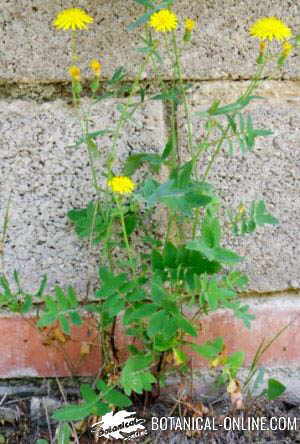Contents
Herbal remedies for cough
Phytotherapy: Herbal teas to treat cough
The primary role of phytotherapy in the problem of cough would focus on using plants with the following properties:
- Antitussive plants that help eliminate dry cough.
- Mucolytic plants that help make the mucus more fluid and facilitate its removal.
- Expectorant plants that help expel phlegm or mucus from the respiratory tract.
Productive cough plant expectoration remedies
The most important plants, depending on their function, are:
- Fennel (Foeniculum vulgare) If case of bronchi problems, cough or with congested chest, this plant will be very suitable for its expectorant values
- 2 drops of essence dissolved in sugar after meals. Take it up within 3 days
- Infusion of a teaspoon of crushed seed per cup of water for 10 minutes. A couple of cups a day
- Look at the complete study of the plant to see its contraindications or toxicity
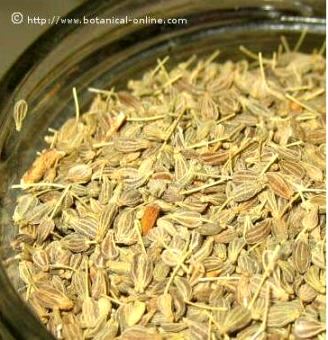
- Anise (Pimpinella anisum) Like fennel, its essential oils give it expectorant and antitussive properties. (Infusion of a teaspoon of crushed seeds per cup of water for 10 minutes. A couple of cups a day)Used in the treatment of asthma it will help to improve breathing by decreasing the secretions in the chest of the sick person. We must not forget that this plant contains about 40 anti inflammatory principles that can relieve congested bronchi. Its antitussive properties will reduce asthmatic coughing (Infusion of half a teaspoon of mixed equal parts of thyme, mint and anise. Drink two or three cups a day)
- Lemon verbena (Lippia triphylla) (Infusion of a spoonful of dry leaves for each cup of water. Two cups a day)
- Lavender: (Lavandula officinalis). (Infusion for 15 minutes of a teaspoon of dried flowers per cup of water. Take hot and sweetened with honey)
- Lime: (Citrus aurantifolia) (Infusion of a teaspoon of dried leaves or a piece of lime rind, 3 times a day. Combine with plants that relieve sore throat caused by coughing, such as plantain, mallow or marshmallow).

Lavender Kumquat: (Fortunella spp) The essential oils have muscle relaxants that can relieve chest and coughing (Take the whole fruit with skin. Infusion of a teaspoon of dried leaves in 1 cup of water, three times a day. Combine with expectorants such as eucalyptus or mint).
- Plantain (Plantago major) It is a mild expectorant and decongestant of the respiratory tract, with antitussive properties. (Syrup of the fresh plant. How to do it? : mash the plant, filter the liquid. Mix it with sugar in the same proportion, diluting it previously by putting the pot in hot water. Take three spoonfuls a day.)
- Fig tree (Ficus carica) In case of cold or chest pain it has mucolytic properties – it softens the mucus in the chest and helps removing cough (A quarter of a liter of milk boiled with 12 figs for 1 / 4 hour. Take the resulting liquid once filtered and sweetened)
- Hyssop (Hyssopus officinalis) Hyssop has anti-inflammatory, antitussive and antibiotic properties to treat cough,

Photo of a hyssop plant Cinnamon (Cinnamomum zeylanicum) The antitussive properties of cinnamom help soothe coughs. (Take 2 or 3 drops of essence of cinnamon dissolved in a glass of warm water sweetened with a teaspoon of honey three times a day. The essence can be found in pharmacies or herbalists) See contraindications and toxicity
- Violet: (Viola odorata) The bechic properties of violet make it well suited to combat coughs, either dry or productive cough. (Infusion of a half teaspoon of dried flowers per cup of water. A couple of cups a day)
Even more interesting is a homemade cough syrup made with violet flowers and sugar. (More information on homemade syrup of violets to remove cough) - Watercress (Nasturtium officinale) Drink fresh plant juice (it can be purchased at pharmacies or herbalists or obtained personally pounding the fresh plant with a mortar and squeezing crushed fresh plant in a piece of cloth. Finally this preparation will be finished by using a strainer to filter it very well. Take about 60 or 150 g daily, divided into several intakes diluted with water or vegetable broth. Add a spoonful of honey for every cup)
- Poppy (Papaver rhoeas) It can be used for coughs caused by many diseases of the respiratory system. (Infusion of half a tablespoon of dry petals per liter of water. Drink three cups a day) (Take poppy syrup for cough)
- Licorice (Glycyrrhiza glabra) In addition to its bactericidal properties, licorice has anti-inflammatory and soothing properties of the respiratory mucous membrane so that licorice root is highly suitable for the treatment of respiratory ailments such as sore throat, cough,, etc. (Make a decoction with a teaspoon of dried root per cup of water. Take three glasses per day maximum) (See possible toxicity in the complete study of the plant)

Licorice Eucalyptus (Eucalyptus globulus) It smooths throat, bronchial irritation and calms cough produced by bacterial respiratory diseases, including whooping cough. (Inhale hot vapor of the decoction of a couple of tablespoons per liter of water)
- Boldo: (Peumus boldus) Also rich in cineole, like eucalyptus. (Boldo infusions) (Boldo syrup: prepare an infusion in half a liter of water of 20 g of dried boldo leaves, add 250 g of whole sugar or honey)
- Thyme (Thymus vulgaris) it can be used to relieve sore throat or when the chest is congested and shows a very persistent cough. (Take three cups a day with the infusion of one teaspoon of dried flowers per cup)
- Iceland moss (Cetraria islandica) Its antitussive properties help calm cough (Decoction for 5 minutes of 10 g of shredded dried plant per liter of water. Throw water and boil it again in fresh water for half an hour. Take a couple cups per day)
- Elder (Sambucus nigra) Very useful against respiratory problems, especially to relieve cough processes accompanying flu, colds or bronchitis. (Ripe fruits eaten raw or made into jam. Elder fruits, not being very ripe, are toxic!
- Cowslip (Primula veris) Like farfara is ideal for resting coughs, specially asthmatic cough moreover when accompanied by mucus. (Decoction of 40 g. of rhizome per liter of water. Take 4 cups per day)

- Clove (Eugenia caryophyllata) For its antitussive properties preparations with oil of cloves will help reduce coughing. (A couple of drops of oil of cloves dissolved in a cup of hot water, sweetened with honey. Drink two or three glasses a day)
- Sundew (Drosera spp.) Suitable for asthma, whooping cough and bronchitis. (Infusion of a teaspoonful of dried plant. A couple times a day.)
- Bay (Laurus nobilis) In case of respiratory illness it has a beneficial effect against influenza, bronchitis, cough and respiratory symptoms in general (pharyngitis, laryngitis, etc.) The cineole, present in the essential oil, plays a leading role for its antibacterial, antitussive and anti bronchitic virtues. But in addition, many components are also involved in this effect, such as acetic acid, alpha-pinene and camphene. (Infusion of a pair of leaves in a cup of water for 10 minutes. 4 cups per day)
- Clover (Trifolium pratense) Clover is a useful expectorant in respiratory ailments. It protects the lining of the airways and helps remove mucus, so it is very useful in irritation of the lungs that leads to bronchitis and calms cough. (Infusion of a teaspoon of dried leaves per cup of water. A couple of cups a day.)
- Garlic (Allium sativum) Especially suitable for bacterial cough because of its expectorant properties. (Maceration during 10 days of half a kilo of crushed garlic in a liter of white wine. Take 3 tablespoons a day) (15 drops of fluid extract daily divided in 3doses. It is sold in pharmacies and herbalists) (See contraindications and toxicity in the complete plant study)
- Chestnut (Castanea sativa) Its antitussive properties calm coughing (infusion of 4 or 5 tablespoons of dried leaves per liter of water. Take three glasses a day, by means of several spoonfuls from time to time, away from meals)

- Nutmeg (Myristica fragrans) The essential oil of nutmeg is used in external use to treat respiratory abnormalities such as bronchitis, (Apply a compress on the breast with some drops of diluted essential oil)
How to soothe dry cough? Dry cough remedies
- Mallow: (Malva sylvestris) Rich in mucilage, it is ideal to soften the lining of the respiratory system. It is used in respiratory diseases such as cough, especially dry cough, cold, chest pain, etc.. (Infusion for 5 minutes of a tablespoon of flowers with two leaves of eucalyptus. A couple of cups a day)
- Peach tree (Prunus persica) Peach tree leaves infusion is effective in treating cough, especially irritative one. (Infusion of a teaspoon of dried leaves per cup of water. A couple of glasses a day)
- Marshmallow (Althaea officinalis) with properties for both, dry cough and productive cough (Infusion of a spoonful of dried root per cup of water for 10 minutes. 2 cups per day)
- Hibiscus (Hibiscus spp.) (Inhale warm steam of hibiscus that is by adding a few drops of extract of hibiscus in the hot bath water)
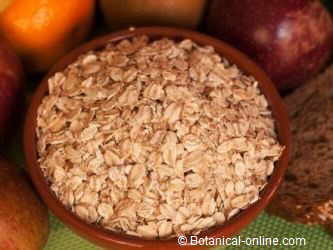
- Oats (Avena sativa) (Decoction of 4 tablespoons of seeds in two liters of water until the water evaporates halfway. Drink a couple of glasses a day divided into several intakes)
- Mint / Peppermint (Mentha spp / Mentha x piperita) Thymol, together with luteolin, cineole and carvacrol have antitussive properties very useful to reduce coughing (Infusion in cold water for 15 minutes of one tablespoon of the dried plant. Take three glasses a day sipping occasionally) (Suck a mint sweet)
- Pine (Pinus sylvestris) cineole, borneol and protocatechuic acid will provide antitussive properties, suitable sooth cough associated with many respiratory symptoms. (Infusion of half a teaspoon of dried buds per cup of water. Take a spoonful of this preparation every two or three hours)
- Coltsfoot (Tussilago farfara) A general antitussive with special properties in the treatment of asthmatic cough. (Infusion of a teaspoon per cup of water. 3 cups a day maximum. Higher amounts can damage the liver because it contains potentially carcinogenic alkaloids. Do not take if other medicines are consumed.)
- Date palm (Phoenix dactylifera) Dates, combined with dried figs may be an appropriate remedy for treating cough. (Decoction of three dates and two figs in a liter of water for 10 minutes. A couple of cups a day)
- Mullein (Verbascum thapsus) With mucolytic properties, it helps make the mucus more fluid. Especially useful in the treatment of bronchitis and asthma. (Infusion of a spoonful of dried plant per cup of water. Take 3 cups a day.
How to soothe nervous cough? Nervous cough remedies
- Lettuce (Lactuca sativa) Ideal for soothing cough, specially or nervous origin. (Decoction of some lettuce leaves in water. Add the juice of a lemon. Drink a couple of glasses a day, one of them before going to bed.) You can also make a lettuce syrup (See recipe) Take a couple of hot glasses a day.
- Hawthorn (Crataegus oxyacantha / Crataegus monogyna) Useful for both, nervous and infectious cough. (Infusion of a teaspoon of dried flowers per cup of water for 10 minutes. A couple of glasses a day)
External use
- Bay (Laurus nobilis) The application of poultices of bay leaves is very appropriate to help fight chest diseases and coughing that usually accompanies them.
![]() More information about cough remedies
More information about cough remedies

